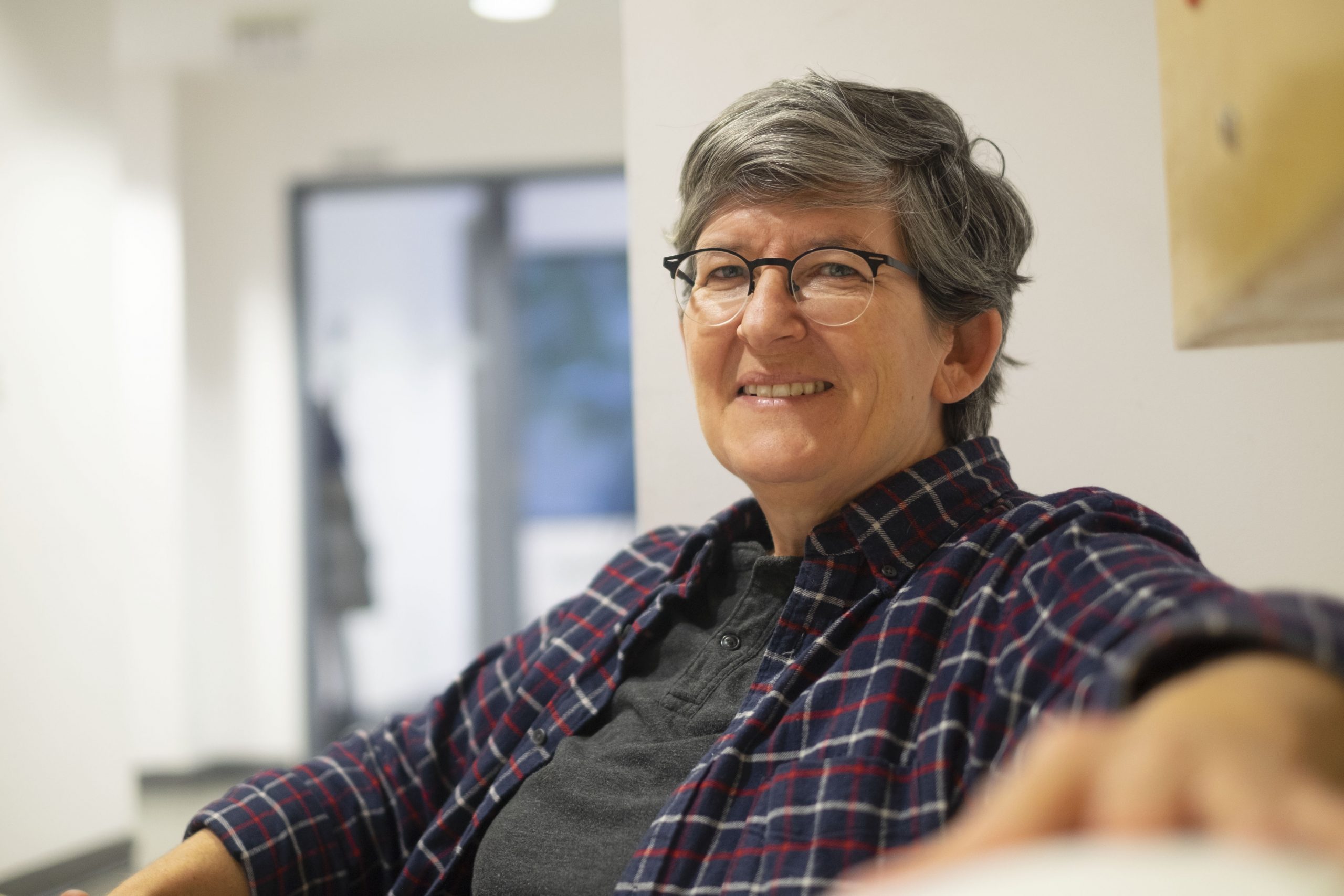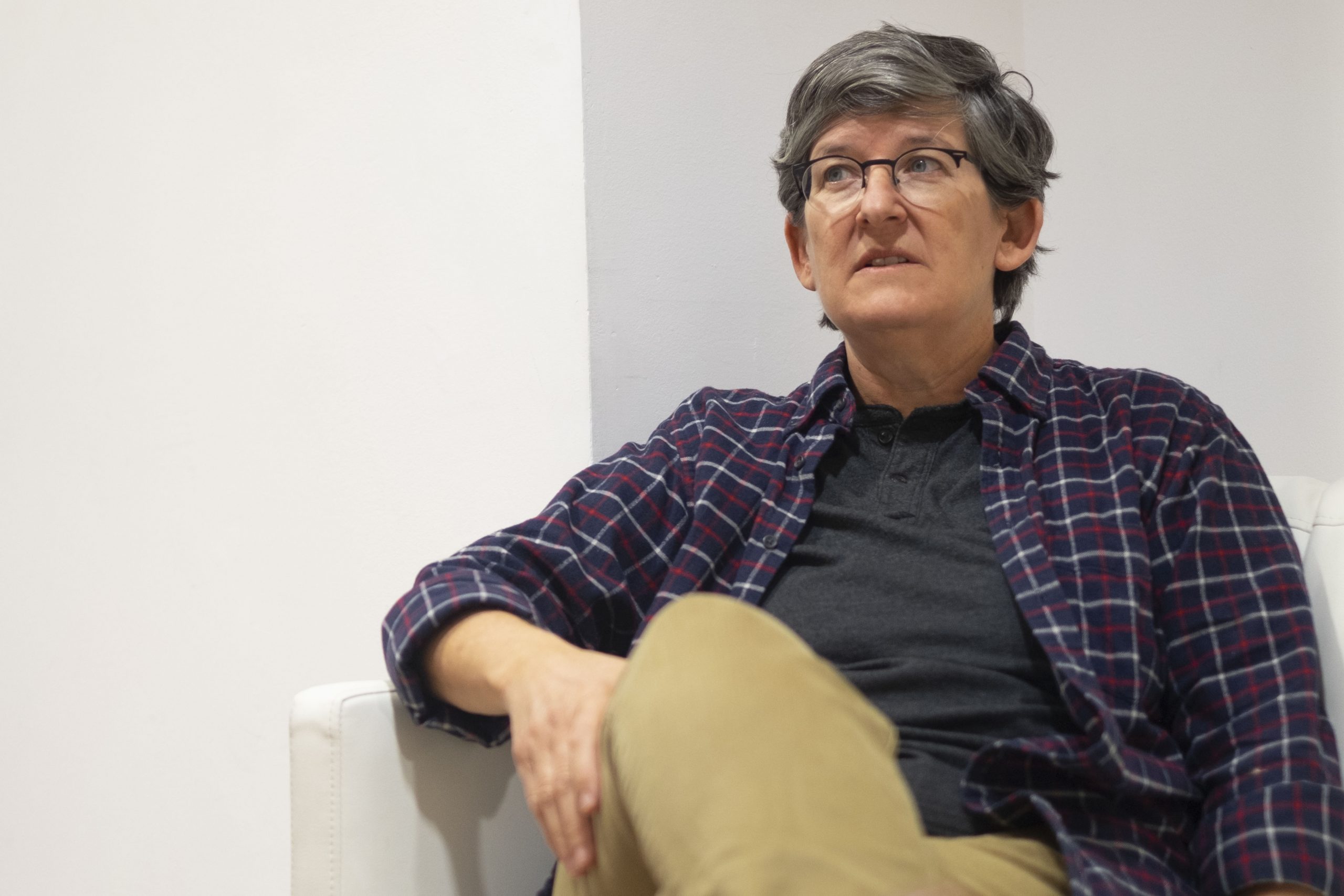Bolder and Stronger, Together
December 17, 2019

“I am happy that I can use my own lived experience and be a connecting point for a lot of older people.”
In conversation with Jo Jefferson – LGBTQ2S Seniors Programs Assistant
Jo has a lot of experience in facilitating programs for older adults. They feel that they can relate to issues that often come up in conversations with older LGBTQ2S adults – issues such as social isolation or the dearth of safe spaces for older queer and trans folks.
“I came out a long time ago, but I was also married and raised kids. I lived in a rural part of Canada that wasn’t as diverse or accepting of queer folks. My former partner who identifies as trans was also very concerned about job safety and housing security. We lived in the closet in many ways – in the shadow of transphobia, biphobia, and homophobia. I am happy that I can use my own lived experience and be a connecting point for a lot of older people.”
Jo plays a vital role in facilitating and planning older LGBTQ2S programming at The 519, such as our weekly Older LGBTQ2S Drop-in, intergenerational bOlder Together series, and our Pals Connect friendly visiting program. They highlight why such programs are important for older queer, trans, non-binary and two-spirit folks.
Why are The 519’s Older LGBTQ2S programs important for our communities?
Our programs are focussed on serving older queer, trans, non-binary, and two-spirit folks, and addressing their existing and emerging needs. These facts make them so important. They create safer spaces for older queer and trans folks to be their authentic selves, and also provide opportunities for intergenerational conversations and building important skills – such as accessing herbal medicine, or finding ways to talks about grief.
Any successes of the older LGBTQ2S programming that you’re particularly proud of?
The Pals Connect program, where we matched self-identified isolated older folks with volunteers who’d visit them, has been a great success. It was encouraging to hear stories of how the relationship changed people’s entire outlook. I think we identified a sustainable way to make connections and reduce isolation among older adults.
Besides great attendance, we have also seen an increase in participation over the years by older women, trans folks, and people of colour. I think that’s excellent.
What are some of the important issues you want to highlight?
There are some older folks who aren’t out to anyone in their lives, but at the drop-in, they can come and be their fabulous, authentic selves. It is often the only place for them to be open.
bOlder Together brings together people of different generations where they can talk about what it’s like to be queer now, or what it meant to be queer in the earlier days, for example. Often, people can’t have these conversations with colleagues, or family members, or in other places where they access services. This is where they can be themselves. Isolation can be a great health risk for older folks, and such opportunities contribute to a huge part of wellness.

What do these programs mean to you at a personal level?
I feel a tremendous sense of belonging here, where my lived experience is really valuable and can be put to good use to help others.
What is your vision for older LGBTQ2S programming in the future?
I would love to see our participants taking more of a leadership role – even if it means facilitating workshops. I would like to see Pals Connect expand so that we can respond to the growing applications, especially from people in long-term care.
Impact Stories
June 2024
Sush: Cooking with Salt, Pepper, and Love!
Volunteering with Abuelita Norma
May 2024
Jayan: Youth Activism Today and Tomorrow
From the Village: Connie Langille on the promise of The Village
November 2023
From the Village: Nik Redman reflects on Trans Fathers 2B
September 2023
From the Village: Toronto Bi+ Network's Tara Schorr on Bi+ Visibility Day
From the Village: Chanelle Gallant on the 23rd anniversary of the Pussy Palace raid.
July 2023
From The Village: Patrick Fahn, AIDS Memorial Architect
May 2023
December 2022
Mayumi: The More We Are Together, The Happier We’ll Be
Kirina: Transitioning Every Day, in Every Way
November 2022
Frank: Better When He's Dancing
April 2020


